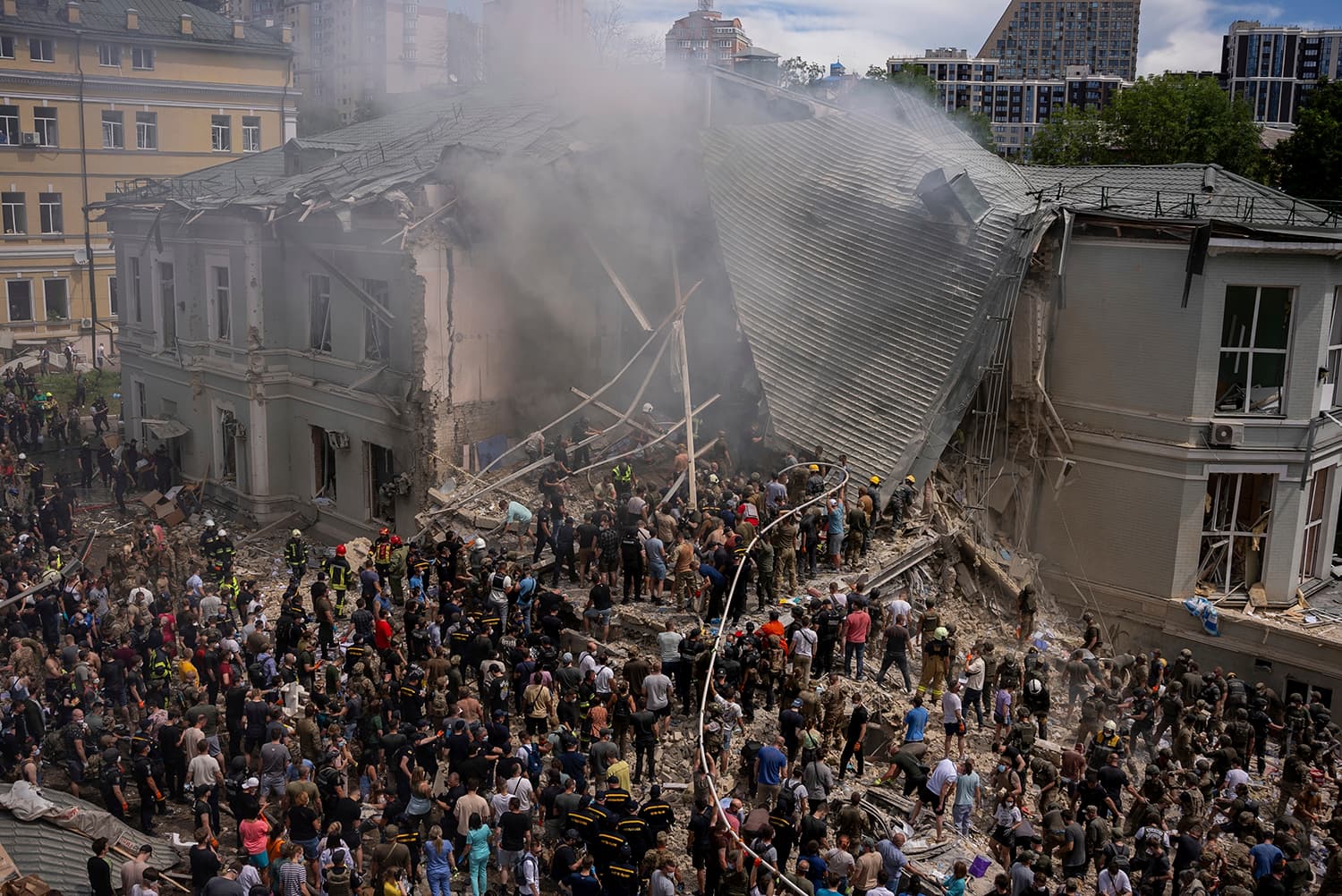WQ Dispatch July 2024
Ukraine deals with the aftermath of renewed bombing as NATO meets to shore up support for the Eastern European country.
As world leaders gather in Washington, DC for the NATO summit, we examine several developments in US-Russia relations and Russia’s place on the global stage since publishing the spring 2024 edition of the Wilson Quarterly, Understanding Russia, which drew on insights from the Kennan Institute’s deep bench of experts and its 50 years of scholarship to provide a comprehensive overview of the historical and political factors that shaped the Soviet Union, and now Russia.
On July 8, a series of Russian bombings that the New York Times described as “one of the deadliest attacks on Kyiv since the first months of the war,” killed dozens and injured hundreds more, including the destruction of a children’s hospital that killed at least two dozen. It is indicative of escalating violence and civilian casualties that recently prompted the US to announce a new military aid package for Ukraine, including advanced weaponry and ammunition. The US and Russia have accused each other of escalating tensions and the conflict, and diplomatic stressors remain high between the two countries.
The Russia-Ukraine war will be a big focus for the summit, with NATO Secretary General Jens Stoltenberg saying that supporting Ukraine is a top priority. While recent elections in France and for the European Parliament did little to upset Western unity in favor of Ukraine, shifting political winds could threaten that, especially if President Biden were to lose the White House to Donald Trump, who is seen as more sympathetic to Putin.
As NATO leaders prepare for whatever happens in the US presidential election, Putin welcomes Indian Prime Minister Narendra Modi for his first visit to Russia since the full-scale invasion. It is also Modi’s first overseas visit since securing a third term, putting a spotlight on the strategic importance of India’s bilateral relationship with Russia.
In May, China President Xi Jinping hosted Putin for a two-day state visit where they reaffirmed their partnership. While Russia, India, and China do not have a formal trilateral alliance, they share complex and evolving relationships. The three nations are members of the BRICS group (Brazil, Russia, India, China, and South Africa), an economic bloc aiming to challenge Western economic dominance.
No matter what comes out of the NATO summit, or the Russia-India-China dynamic, the future of US-Russia relations and Russia's global position remains uncertain. The ongoing conflict in Ukraine and shifting political landscape will most certainly shape the trajectory of these relationships in the coming months and years. The Wilson Center's Kennan Institute will continue to provide critical analysis and insights into these and other complex and evolving dynamics.
Cover photo: Emergency workers respond at the Okhmatdyt children's hospital hit by Russian missiles, in Kyiv, Ukraine, Monday, July 8, 2024. A major Russian missile attack across Ukraine on Monday killed at least 31 people and injured 154, officials said, with one striking a large children’s hospital in the capital of Kyiv, where emergency crews searched the rubble for victims. (AP Photo/Alex Babenko)
